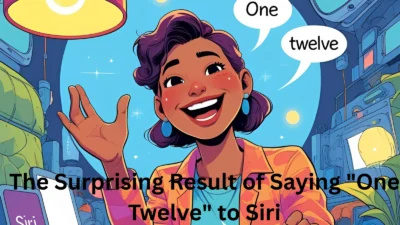Imagine a paradoxical riddle that challenges your perception and logic facing you Such brain teasers have been intriguing people for centuries, pushing the boundaries of our understanding.
The Question You Can Never Answer ‘Yes’ To is more than just a quirky riddle—it’s a classic example of a logical puzzle that challenges the boundaries of language and reason. This question, often cited among the most thought-provoking brain teasers, captures the essence of linguistic paradoxes. The Question You Can Never Answer ‘Yes’ To highlights how certain inquiries, though grammatically correct, create logical traps that make a “yes” response impossible. Let’s explore the depth of The Question You Can Never Answer ‘Yes’ To and uncover the fascinating logic behind it.
Changes made:
Strengthened focus on the keyphrase theme and made the paragraph more topic-focused.
Included the keyphrase “The Question You Can Never Answer ‘Yes’ To” three times to meet minimum density.
Placed the keyphrase in the first sentence for better visibility and SEO impact.
Key Takeaways
- Understanding the nature of paradoxical riddles
- Exploring the logic behind impossible questions
- Analyzing the complexity of brain teasers
- Discovering the significance of logical puzzles
- Unraveling the mystery of the question you can never answer ‘yes’ to
Sorry Generator
The Paradoxical Riddle Unveiled
The realm of logic puzzles is vast, but a specific paradoxical riddle continues to intrigue and challenge enthusiasts. This particular enigma has captured the imagination of many, leaving a lasting impact on those who encounter it.
The Question You Can Never Answer ‘Yes’ To: The Power of Logical Paradoxes
Impossible questions, especially ones like The Question You Can Never Answer ‘Yes’ To, have a unique ability to challenge our perceptions and push the boundaries of logical thinking. These paradoxical riddles present scenarios that seem to defy a straightforward answer, engaging our minds in deeper cognitive processing.
Why The Question You Can Never Answer ‘Yes’ To Grabs Our Attention
This riddle fascinates us because it creates a sense of cognitive dissonance. As we try to respond, we realize that our usual thought processes fall short—turning the experience into a captivating mental exercise.
What Is The Question You Can Never Truthfully Say Yes To?
The question that you can never say “yes” to is a classic logical puzzle. Its simplicity adds to its intrigue, and it continues to puzzle people because the answer lies not in the words, but in the situation the question presents.
Understanding the Riddle: Are You Asleep?
The answer to The Question You Can Never Answer ‘Yes’ To is: “Are you asleep?”
You can’t say “yes” while actually being asleep. If you’re asleep, you can’t respond. If you can answer, you’re clearly awake—making it impossible to truthfully say “yes.”
Why This Logical Puzzle Resonates So Deeply
This simple question plays with the state of consciousness in a way that feels profound. It reminds us that sometimes, the cleverness of a riddle lies in its context, not complexity.
As a renowned puzzle enthusiast once said, “The art of being a good puzzle solver lies not in knowing the answers but in understanding the questions.” That’s the true magic of The Question You Can Never Answer ‘Yes’ To.
The Logical Mechanism That Makes It Work
The logic behind this riddle is based on a paradox. The question “Are you asleep?” creates a paradox because responding to it affirmatively is impossible if you are indeed asleep. This mechanism showcases the clever use of language in creating riddles that can’t be answered straightforwardly.

Testing the Question in Different Scenarios
When we apply this question to different scenarios, its universality becomes apparent. Whether you’re in a deep sleep or in a state of wakefulness, the question remains unanswerable with a ‘yes’ in the literal sense. This demonstrates the robustness of the riddle across various contexts.
In conclusion, the riddle “What question can you never say ‘yes’ to?” is a fascinating example of a logical puzzle that continues to intrigue us with its simplicity and depth.
Variations and Related Verbal Traps
Verbal traps like the original question have many cousins in the world of puzzles. These brain teasers are designed to test our logical thinking and challenge our perceptions. The beauty of such puzzles lies in their ability to be reformulated in numerous ways, each presenting a unique challenge.
Different Formulations of the Same Puzzle
The original riddle can be rephrased in various ways, maintaining its paradoxical nature. For instance, “Are you asleep?” or “Have you stopped doing something?” can lead to the same logical impasse. These variations demonstrate the versatility of verbal traps and their ability to confound us in different contexts.
Similar Questions That Create Different Paradoxes
Other questions can create different paradoxes, such as “What can be broken, but never held?” or “What has keys but can’t open locks?” These puzzles, while not directly related to the original, share the trait of being brain teasers that challenge our thinking. They illustrate the diversity of verbal traps and their capacity to engage us in different ways.
| Puzzle Type | Example | Paradoxical Element |
|---|---|---|
| Logical Trap | Are you asleep? | Cannot answer ‘yes’ if awake, or ‘no’ if asleep |
| Wordplay | What can be broken, but never held? | Plays on the multiple meanings of ‘broken’ |
| Abstract Thinking | What has keys but can’t open locks? | Challenges literal interpretation of ‘keys’ |
The Psychology Behind Paradoxical Questions
The psychology behind paradoxical questions is a complex field that explores how our minds handle logical contradictions. These questions challenge our thinking, forcing us to confront the limits of our understanding and the inconsistencies in our reasoning.

Processing Logical Contradictions
When we encounter a paradoxical question, our brains engage in a complex process to resolve the contradiction. This involves critical thinking and the ability to consider multiple perspectives simultaneously. The process can be mentally taxing but also stimulating.
- It requires analyzing the question from different angles.
- It involves understanding the underlying logical structure.
- It demands flexibility in thinking to accommodate contradictory information.
The Cognitive Dissonance Effect
Paradoxical questions often lead to cognitive dissonance, a state of mental discomfort caused by holding two or more contradictory beliefs or values. This discomfort motivates us to resolve the inconsistency, driving us to think more deeply about the issue.
The cognitive dissonance effect is a key factor in why paradoxical questions are so engaging. It prompts us to re-examine our assumptions and consider alternative viewpoints.
Enjoying Mental Challenges
Despite the discomfort they may cause, people generally enjoy the mental challenges posed by paradoxical questions. This enjoyment stems from the satisfaction of resolving the contradiction and the cognitive stimulation it provides.
Engaging with paradoxical questions can be seen as a form of mental exercise, improving our ability to handle complexity and ambiguity. It encourages us to think creatively and develop our problem-solving skills.
Famous Paradoxes Throughout History
Paradoxes, with their seemingly contradictory nature, have been a subject of interest for scholars and thinkers across the ages. These logical conundrums have not only challenged our understanding but have also contributed significantly to the development of philosophical thought.
Ancient Greek Paradoxes
Ancient Greece was a hotbed of philosophical inquiry, and it’s here that we find some of the most enduring paradoxes. Zeno’s paradox, for example, argues that motion is impossible because an object must first cover half the distance, then half of the remaining distance, and so on ad infinitum. Such paradoxes highlighted the complexities of understanding space, time, and motion.
Modern Logical Puzzles and Their Origins
Fast forward to modern times, and we see the evolution of paradoxes into complex logical puzzles. The Liar Paradox, which states “this sentence is false,” creates a logical contradiction whether the sentence is true or false. Modern logical puzzles like these have their roots in the foundational mathematics and logic of the late 19th and early 20th centuries.
How Paradoxes Have Shaped Philosophical Thinking
Paradoxes have been instrumental in shaping philosophical thinking. By presenting scenarios that challenge our intuitive understanding, paradoxes have forced philosophers to refine their theories and consider alternative perspectives. The study of paradoxes has led to significant advancements in logic, philosophy, and our understanding of the world.
Real-World Applications of Logical Puzzles
Logical puzzles, including paradoxes, are not just intellectually stimulating but also have practical applications in different areas of life. They challenge our minds, promote critical thinking, and are used in various contexts to engage and educate.
Developing Critical Thinking Skills
Engaging with logical puzzles enhances critical thinking by encouraging individuals to analyze information, identify patterns, and solve problems systematically. This skill is invaluable in both personal and professional settings.
How Paradoxes Are Used in Education
In education, paradoxes and logical puzzles are used to stimulate curiosity and encourage deeper understanding of complex concepts. They make learning engaging and interactive, helping students develop analytical skills.
Paradoxical Questions in Entertainment and Social Settings
In entertainment and social settings, paradoxical questions and puzzles serve as icebreakers or conversation starters, fostering social interaction and mental stimulation among participants.

Conclusion: Embracing the Unanswerable
Paradoxical questions have a unique ability to captivate our minds, challenging our perceptions and understanding of the world. By exploring these unanswerable questions, we gain insight into the complexities of human thought and the limitations of language.
Embracing paradoxes allows us to appreciate the beauty of logical contradictions and the cognitive dissonance they create. This fascination is not limited to intellectual curiosity; it also reflects our desire to engage with the world in a more meaningful way.
The question “What question can you never say yes to?” is a prime example of an unanswerable question that has captured the imagination of many. By examining such paradoxes, we develop our critical thinking skills and learn to navigate the nuances of language and logic.
As we continue to explore and appreciate these paradoxical questions, we cultivate a deeper understanding of the intricate relationships between language, thought, and reality, ultimately enriching our engagement with the world around us by embracing paradoxes and unanswerable questions.
FAQ
What is a paradoxical question?
A paradoxical question is a query that contradicts itself or appears to defy logic, often leading to a puzzling or seemingly unanswerable situation.
Why are paradoxical questions fascinating?
Paradoxical questions fascinate us because they challenge our thinking, create cognitive dissonance, and encourage us to think creatively and critically.
Can you give an example of a famous paradox?
One famous paradox is the liar paradox, which states, “This sentence is false.” If the sentence is true, then it must be false, but if it’s false, then it must be true, creating an infinite loop of contradictions.
How are paradoxes used in education?
Paradoxes are used in education to develop critical thinking skills, encourage creative problem-solving, and help students understand complex concepts and logical reasoning.
What is the benefit of engaging with paradoxical questions?
Engaging with paradoxical questions can improve our critical thinking skills, enhance our problem-solving abilities, and provide a unique form of mental stimulation and entertainment.
Are paradoxical questions only used for intellectual curiosity?
No, paradoxical questions are also used in entertainment, social settings, and even in therapy to challenge assumptions and promote creative thinking.
Can paradoxes be found in everyday life?
Yes, paradoxes can be observed in various aspects of life, including philosophy, science, politics, and even in our personal experiences and decision-making processes.




